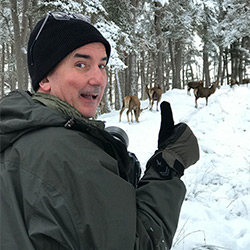 Today I have the honor of presenting an interview that comes all the way from Hampshire in the UK. Keith Elcombe is an experienced wildlife and nature Photographer, who has traveled around the United Kingdom photographing a diverse array of wildlife. While out in the field, Keith has a true respect and appreciation for nature and leaves his subjects undisturbed in their natural surroundings. Through his work, Keith has the ability to convey his passion for capturing stunning images of wildlife and the natural world. In addition to photographing wildlife, Keith also offers pet photography and basic photography training.
Today I have the honor of presenting an interview that comes all the way from Hampshire in the UK. Keith Elcombe is an experienced wildlife and nature Photographer, who has traveled around the United Kingdom photographing a diverse array of wildlife. While out in the field, Keith has a true respect and appreciation for nature and leaves his subjects undisturbed in their natural surroundings. Through his work, Keith has the ability to convey his passion for capturing stunning images of wildlife and the natural world. In addition to photographing wildlife, Keith also offers pet photography and basic photography training.
Keith, thank you so much for sharing your experiences with us and thank you so much for all your thoughtful responses.
If you’d like to learn more about Keith, please visit his website. You can also visit him on Twitter.
Can you please tell the readers a bit about yourself?
My name is Keith, I live in Hampshire in the UK with my long term partner Helen and presently four domestic pet rats. I’m what you would call ‘middle aged’, but I don’t feel it. Age is indeed just a number. Besides photography, I have a strong passion around music (pretty much all genres) and play the guitar. I also have strong interests around technology. Photography is not my day job, yet. I currently work full time in IT but in my spare time I’m busy building my photography business.
Where do you call home?
Home is anywhere with a comfy sofa and a good cup of tea, with good company. Having spent much of my childhood moving around a lot with my parents (my father was in job where he was head-hunted by other employers a lot, so we never stayed in one location for long as we went where his work was), I struggled to call anywhere truly ‘home’. I guess there are places I am comfortable at but I’ve never truly put down roots in any one place.
After browsing through your website, I see that you have built up an extensive collection of wonderful photography. When did you first become interested in photography and how long have you been involved with it?
My late father tried to get me into stills photography when I was about 10 years of age, but I just couldn’t understand what all the numbers and letters meant on the camera, and the whole thing with how actual film worked was beyond my childhood mind, so I came to really dislike it. Coupled with the fact that my father also got me to help him with editing cine movies that he made (nothing too fancy, just home movies and some material for his job), when I would have rather been out playing with my friends, I really had no interest in film or photography and came to resent it.
Fast forward many years and the advent of digital photography, and I got into video in a big way, producing videos for a car club I belonged to at the time. I used to video track days and events, produce DVDs and sell them onto people who wanted them. I loved it. Everything about ‘digital’ was just so easy, and actually made sense. I could concentrate on producing a video and not have to worry about all the technicalities as the camera was dealing with all of that.
After some time, I switched to still photography, after purchasing a Fuji bridge camera (the S9600). Again this took fantastic photos and allowed me to concentrate on taking the photograph and not worry about f numbers and shutter speeds. I was very happy. This would have been about 12 years ago when I switched to still photography form video. But after a while I wanted to do more with my photos, so looked to invest in a decent DSLR. So I opted for a Canon EOS600D and the rest they say is history…
Are you formally-taught or self-taught?
To be honest, mostly self taught, but I’ve picked up stacks of information from professionals, both on courses and watching VLOGs & listening to Podcasts. I’ve drawn a lot of inspiration from Gerry Van Der Walt and his wildlife photography podcasts/Vlogs, and Jared Polin for his general open views on photography and camera equipment. Of course nothing compares to learning first hand from an actual human being though, so I would always recommend getting yourself on courses with experienced professionals who have a good reputation to help expand your learning. I’ve been fortunate enough to learn from expert Scottish wildlife photographer, Andy Howard, for whom nothing is too much trouble when it comes to tuition & photography.
Are you satisfied with your choice of getting involved with this industry? Is there anything else you would rather be doing?
So currently I’m still to ‘go professional’ as I have a day job in a completely unrelated industry. Day to day I’d rather be doing photography than the job I’m doing. Safe to say pretty much all my spare time is taken up with photography, and building a photography business, so I’m effectively running two jobs at the moment. Even with all my spare time taken up this way, I know I’m doing the right thing and have no regrets at all as I find it incredibly rewarding. Our social time usually evolves around ‘where are we going next’ for a shoot. As I tap this (on a Friday), my partner and I are planning to head to the coast on Saturday so I can photograph birds (mostly gulls) in flight.
What type of photography shoots do you look forward to?
Ones where I have a good chance of seeing my subject matter, even if I don’t always manage to get the shots I want. For me its not just about the photography; its about the wildlife too. Sometimes just being in the presence of a particular animal or bird is enough and the photos can come later. Its important to learn the habits of your subject matter. Take the time to do that and you’ll be rewarded with great photos eventually.
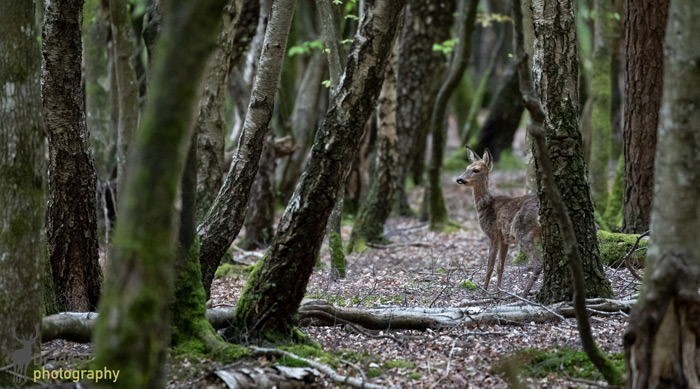
When shooting subjects, what do you find most challenging?
Other people getting in the way/disturbing my shoot. Photographing wildlife I love being on my own with my chosen subject matter (unless I’m out with another photographer), so when the subject in question is disturbed by random people, I do find it frustrating. For example, during the deer rut, tracking down deer in a large forest can be quite a challenge sometimes, so when I find some I feel a sense of achievement for doing so. On a number of occasions my hours of tracking and working my way closer to the deer has been ruined by someone just walking right into the area and frightening the deer off. Learning to remain calm in these situations is key, despite when you want to yell at someone for effectively ruining your hard work and wasn’t your last few hours of tracking down your subject. For this reason when heading out alone on a short, I tend to steer clear of areas where people might head to, preferring to stay off of the main tracks and walkways.
Location and weather conditions seem to be a crucial aspect to a successful photograph. How do you handle these unpredictable factors?
Photographing wildlife you have to adapt if the weather conditions change. In the UK you always need to be prepared for rain (mostly, although this summer is the exception), so I tend not to let overly poor weather conditions ruin a shoot. It is sometimes better to embrace any change and get the best shot you can with unplanned conditions. Again, for me its about the subject matter; as long as I can get a shot of my subject, the weather shouldn’t matter. I find if you can adapt to changing conditions sometimes you can be pleasantly surprised with the results. You might go out looking for a sunlit shot of an animal, but photographing the same animal in the rain may give your composition more of a story and make it more appealing to others. Again adapting to changing light and weather conditions and not packing up and going home are good qualities in any wildlife photographer. So in my kit bag there’s always a waterproof cover for my camera gear, and when I go out on a shoot I prepare for most conditions clothing wise.
What would you say your most remarkable wildlife encounter has been?
I love photographing deer, and last winter I had the opportunity to photograph red deer in Scotland. Not only that but it had been snowing days before this shoot, so this was an added bonus – photographing magnificent red deer stags in a pine forest, in the snow. I was in my element and loved every minute of getting shots of these amazing animals in such a great setting.
Share with us your favorite image and why.
This is tough one as I hold all the photos I publish in high regard. But if I was pressed it would be a photo of a fallow deer buck that I took one autumn. I’d been out at a usual haunt looking for deer, and chanced upon this wonderful male lying down just minding his own business. Not wanting to disturb him I spent the best part of the next hour and a half working my way closer to him, using trees and vegetation for cover, and crawling on my belly through mud and deer poo (this was rutting season after all and the area I was in was widely used as deer thoroughfare). So I was cold, muddy and dirty, but so in the moment of getting a good shot of him that didn’t seem to matter. He eventually stood up to move on and I snapped a couple of shots of him head on. Then he turned his head to one side and I got the shot that I did. As I got the shot, I knew that this shot was ‘the one’, and it’s proved very popular; I’ve even had an artist buy the artistic rights to it tho she could produce prints using the image. I have one of this prints hanging up in our lounge.
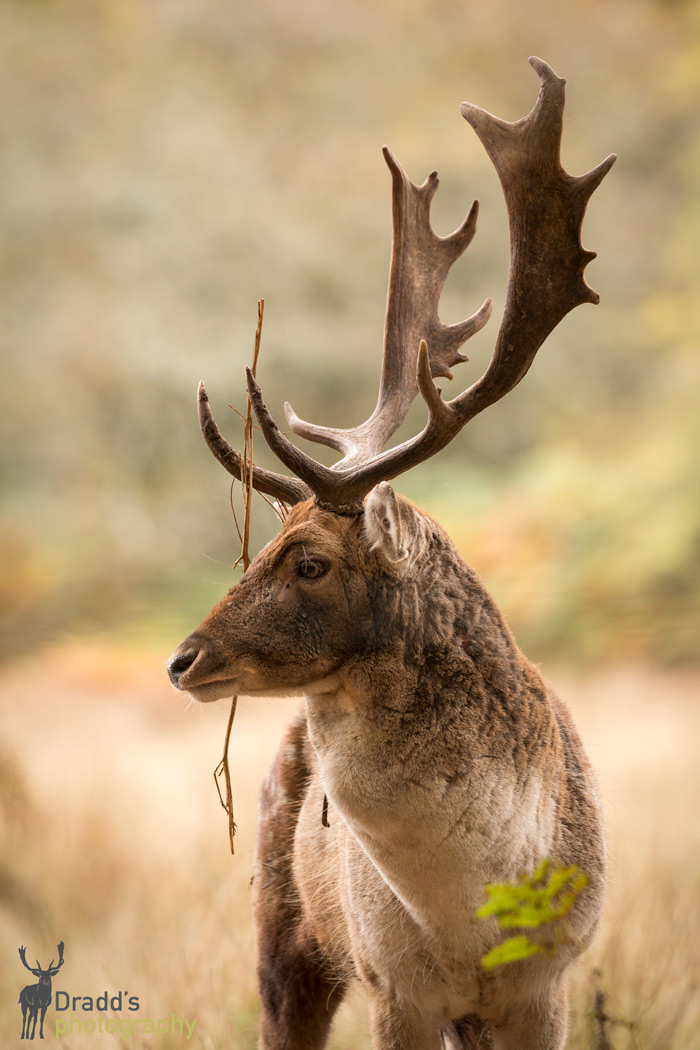
How do you keep your photography fresh and how do you stay motivated to keep on learning?
I’ll be honest, sometimes I do lose my photography mojo, and can suffer ‘photography droughts’. But when that happens I look to other professionals for inspiration. Even speaking to other photographers can inspire me to try new things, be that locations or camera settings. Also sometimes its a case of just grabbing your camera kit and getting out with no plans; try a new location and sometimes inspiration just comes. For me, I’m at my most relaxed when I have a camera in my hand, and if I’m staking out a shoot waiting for ages for my subject matter to appear, or just photographing the pets at home, the effect is the same: I relax completely. This is what keeps me doing what I do.
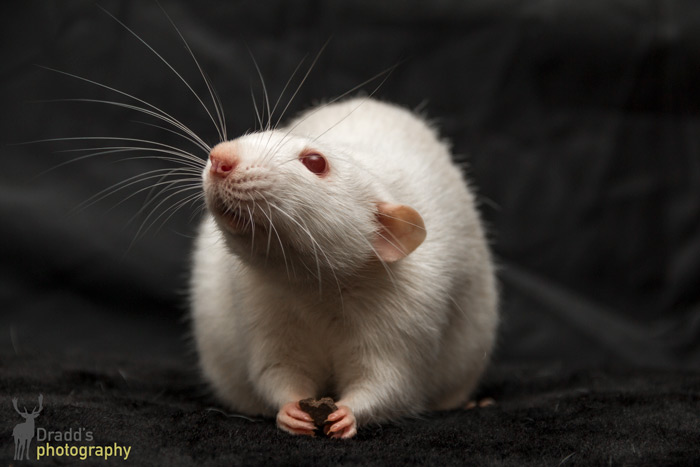
What do you hope viewers take away from your images?
I want them to see the subject matter and think ‘Wow!’. I want them to have their interest in the photographs subject fired up so they start asking questions and learning about it.
What’s the best part of being a photographer?
As a wildlife photographer, its about being closer to nature and learning about another species’ world, and being able to capture snippets of that world and share them with people who don’t get the chance to experience it for themselves. It’s about sharing and making people aware through your images.
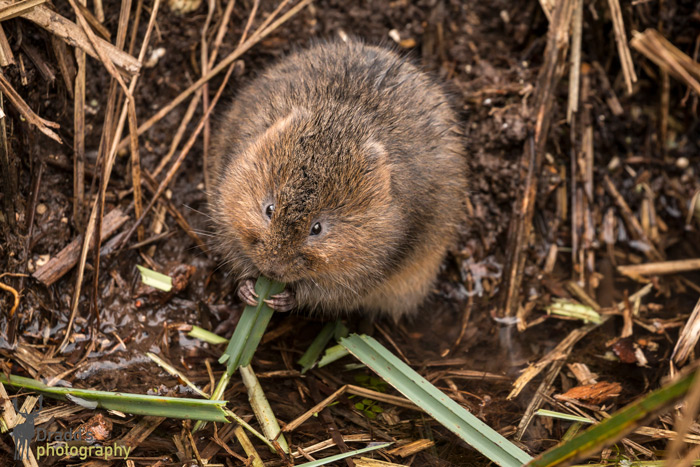
Do you have any tips for new photographers who want to take better wildlife photographs?
With wildlife photography its not just about the photograph, its about an appreciation of wildlife and your chosen subject matter. Good fieldcraft techniques are way more important that photography skills or kit. You should be able to get close enough to your subject to take a photo without disturbing it. It’s better if your subject doesn’t even know you are there. I wrote a blog on this some time ago as I’m quite passionate about it. You can read all about that here.
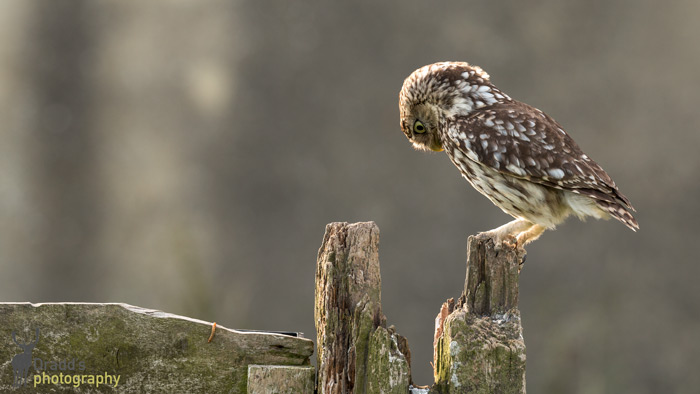
What type of camera(s) do you shoot with? What is your favorite lens?
I shoot Canon, and currently have a Canon EOS600D, and EOS 70D, and my main shooter is the Canon 1DX Mk II. My favourite lens tends to be the Canon 100-400mm F/4-5.6L USM II.
What is in your camera bag?
Good question. In fact I have three camera bags which get used depending on the shoot I’m heading to. I have a smaller bag that will just take a DSLR body and the 100-400mm lens. A medium bag for 1 body and 2 – 3 lenses, and a larger bag for 2 or more bodies and a handful of lenses.
All bags carry the minimum of:
Spare memory cards
Spare batteries
Lens cloths & lens wipes
Compass
Headache pills
Protein bar
Business cards
Hand gel
Suntan lotion (depending on the season)
A small pocket knife
What is your favorite photography accessory?
The Camtraptions wireless triggers that get used a lot when I’m shooting remotely. They’re very robust and incredibly reliable.
What piece of equipment would you most like to get but don’t have yet?
The Canon 500mm f/4.0 L IS II USM prime lens.
How important is Photoshop or other image editing software in your final images?
I don’t use Photoshop, instead preferring to do all my post processing in Lightroom. And to be honest, I love Lightroom. It’s been a long uphill learning curve, but I’m quite proficient in it now, although still learning from time to time. I couldn’t be without Lightroom; it is my weapon of choice when it comes to processing photos. Like all good software it becomes invisible allowing you to get on with the task in hand. I don’t think I could process my photos using any other tool.
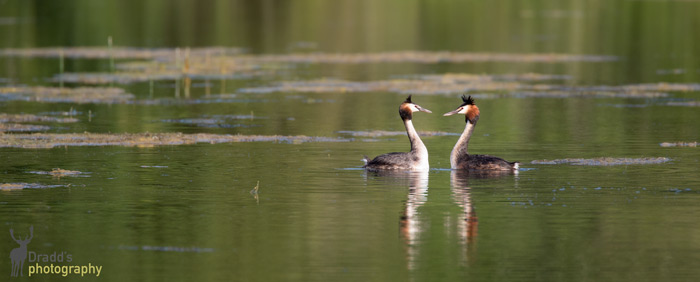
Was there a point in your journey when you started to feel really good about your work? If so, what did it feel like to get past that “tipping point?”
When I ran my first training course for complete strangers’ and got some great feedback. I realised that “Hey, I do know this stuff!” and was confident to pass on my knowledge to others. One of the people on my first course produces a sports booklet for his teams football matches and takes all the photos of the local games. After being on my course and with some coaching from me, his photography skills improved and his booklet won an award. I was happy for him and also pleased to know that I’d helped his photography skills. More recently I’ve been having prints made up of some of my shots. I collected some of them from a local printers the other week and took them into my place of work to show my work colleagues. I was shocked when they started placing orders for the prints and asking when I was having more of my work printed. I was humbled.
Do you have any projects that make you look back and shake your head? What made the experience so unpleasant?
To be honest, no. I’ve been fortunate enough not to have such an experience (yet) with my photography, and I’m not naive to think it will never happen. I try to learn from every experience, and even if a shoot doesn’t go so well, I consider what I could do to improve it for next time. This process is about moving forward and learning at every opportunity. You can’t look back with regrets.
What are your upcoming travel plans?
Back up to Scotland towards the end of summer. My partner and I love heading up there as the people are friendly, and the wildlife plentiful.
What do you think the future holds for you? Where do you see yourself in the next few years?
Running my own photography business. This will involve pet photography, running courses and training in order to give financial support for doing the actual wildlife photography. I’ve already been running some courses to test the format, and these have gone well. I’m also selling prints of my work and greetings cards, again with good feedback and response.
Leave a Reply